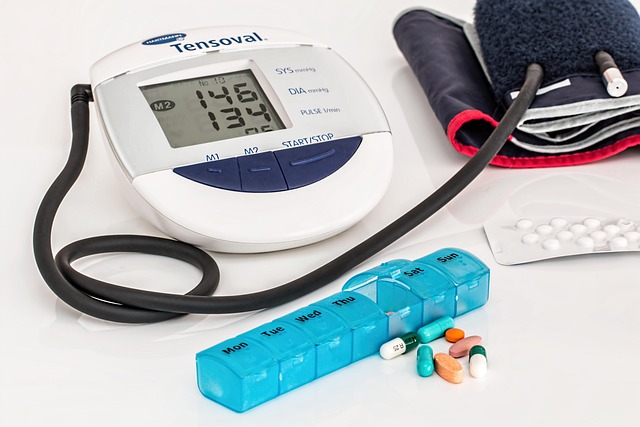Medications That Cause Kidney Disease: What You Should Know
Medications play a vital role in treating many health conditions, but some drugs can negatively affect kidney function over time. Prolonged use or high doses of certain medications may lead to kidney damage, potentially resulting in chronic kidney disease (CKD). Early recognition of symptoms related to kidney problems is important to help reduce further harm and support overall well-being.

What Are Medications That Can Cause Kidney Disease?
Several common medication classes have been associated with kidney damage when used over extended periods or at high doses. Nonsteroidal anti-inflammatory drugs (NSAIDs) like ibuprofen, naproxen, and aspirin can reduce blood flow to the kidneys and cause injury when taken regularly. These over-the-counter pain relievers may seem harmless for occasional use, but long-term consumption significantly increases kidney disease risk.
Certain antibiotics, particularly aminoglycosides like gentamicin, can accumulate in kidney tissue and cause direct damage. Proton pump inhibitors (PPIs) used for acid reflux and heartburn, including omeprazole and esomeprazole, have been linked to chronic kidney disease and acute interstitial nephritis when used long-term. Additionally, some blood pressure medications like ACE inhibitors and angiotensin receptor blockers, while beneficial for many patients, can affect kidney function in specific situations, particularly when combined with NSAIDs or during severe dehydration.
Lithium (used for bipolar disorder), certain chemotherapy drugs, and some immunosuppressants also carry significant kidney risk profiles. Even common medications like acetaminophen can pose problems when taken in excess or combined with alcohol regularly.
How to Recognize the Signs and Symptoms of Kidney Disease
Kidney damage often develops silently, with symptoms appearing only after significant function has been lost. Early warning signs of medication-induced kidney problems include changes in urination patterns – either increased frequency (especially at night) or decreased output. Unexplained fatigue, persistent puffiness around the eyes, and swelling in feet and ankles may indicate fluid retention due to decreased kidney filtering.
More advanced kidney disease symptoms include high blood pressure that’s difficult to control, muscle cramps (particularly at night), and persistent itching. Some patients report metallic taste alterations, decreased appetite, or unexplained nausea. Shortness of breath can occur when fluid builds up in the lungs due to kidney dysfunction.
Laboratory findings often detect kidney problems before physical symptoms appear. Regular blood tests monitoring creatinine and BUN (blood urea nitrogen) levels, along with urine tests checking for protein or blood, can identify kidney function changes early. If you’re taking medications with kidney risk and experience any concerning symptoms, consult your healthcare provider promptly rather than discontinuing medications independently.
Related Programs for Kidney Health Monitoring
For individuals taking medications with kidney risks, several monitoring programs can help protect renal function. Medication Therapy Management (MTM) services, available through many healthcare systems and pharmacies, provide comprehensive medication reviews that identify potential kidney-damaging drug combinations. These programs often include regular lab monitoring schedules tailored to your specific medication regimen.
Kidney disease risk evaluation programs offered by nephrologists (kidney specialists) can establish personalized monitoring protocols for high-risk patients. These typically include baseline kidney function assessment followed by scheduled follow-up evaluations. Many health insurance plans now cover kidney health monitoring programs for patients with diabetes, hypertension, or those taking multiple medications.
Digital health platforms have also emerged to support kidney health monitoring. Apps like MyMedSchedule and MediSafe not only provide medication reminders but can also track kidney function test results over time, helping patients and providers identify concerning trends. Some healthcare systems offer remote monitoring programs where patients regularly submit home measurements (blood pressure, weight) that could indicate developing kidney problems.
Preventing Medication-Induced Kidney Damage
Prevention remains the most effective approach to medication-related kidney disease. Regular medication reviews with your healthcare provider or pharmacist can identify potentially problematic drug combinations before damage occurs. When starting new medications with kidney risks, establishing baseline kidney function through blood and urine tests creates an important reference point for future monitoring.
Maintaining proper hydration is crucial, especially when taking medications filtered through the kidneys. Dehydration concentrates medications in the kidneys, potentially increasing damage risk. However, specific hydration needs vary by individual and medical condition – some kidney and heart conditions require fluid restrictions, so follow your provider’s guidance.
Dosage adjustments based on kidney function are essential for many medications. As we age, kidney function naturally decreases, potentially requiring lower medication doses. Avoiding over-the-counter NSAID overuse is particularly important; consider alternatives for pain management when possible, and never exceed recommended dosages without medical supervision.
Diet modifications can support kidney health while on necessary medications. Reducing sodium intake helps control blood pressure and decreases kidney strain. For those with advancing kidney issues, moderating protein consumption may be recommended, though specific dietary plans should be developed with healthcare providers.
Cost Considerations for Kidney Disease Prevention and Treatment
Proactive kidney health monitoring can significantly reduce the financial burden associated with kidney disease treatment. Without insurance, dialysis treatments for end-stage kidney disease can cost between $70,000 and $90,000 annually. By comparison, preventive measures like regular kidney function tests typically cost between $50-150 per comprehensive panel.
| Service/Program | Provider Type | Estimated Cost Range |
|---|---|---|
| Comprehensive Kidney Function Panel | Primary Care Physician | $50-150 without insurance |
| Nephrology Consultation | Kidney Specialist | $150-400 initial visit |
| Medication Therapy Management | Pharmacist | $50-120 per session, often covered by insurance |
| Kidney Disease Education Program | Hospital Systems | $0-200 (many offer free programs) |
| Home Blood Pressure Monitoring | Self-administered | $30-100 for equipment |
Prices, rates, or cost estimates mentioned in this article are based on the latest available information but may change over time. Independent research is advised before making financial decisions.
Many insurance plans, including Medicare Part B, cover kidney disease screening for high-risk individuals. Medicare’s Kidney Disease Education benefit provides coverage for education services for those with Stage 4 kidney disease, while specialized Medicare Advantage plans may offer enhanced benefits for kidney health monitoring and medication management.
This article is for informational purposes only and should not be considered medical advice. Please consult a qualified healthcare professional for personalized guidance and treatment.




